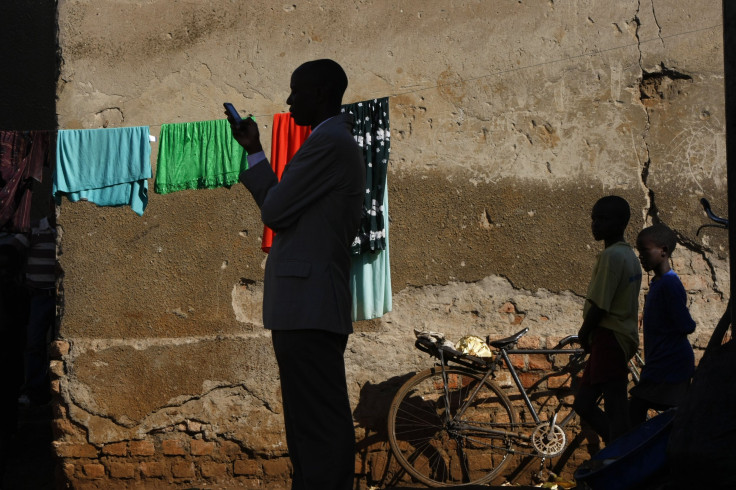Mobile Phone Usage In Africa May Actually Worsen Violent Conflicts: Report

Mobile phone usage has exploded in Africa over the last few years, spurring economic growth and human development even where traditional Internet access is limited. But a new study points to a surprising side effect of cell phone proliferation: It actually increases violent conflicts across the continent.
At least 650 million people in Africa -- more than half the continent’s population -- are mobile users. That number continues to skyrocket; just 10 years ago, it was around 54 million. These devices not only help friends and family stay in touch; they are vehicles for commerce, education, development and innovation. Mobile money programs enable citizens to trade money for goods or services, using their phones in place of banks. Increased connectivity allows entrepreneurs to build support networks and expand their own services.
But according to a report published in the American Political Science Review, cell phones also come in handy for perpetrators of violence.
"Cell phone technology can increase the ability of rebel groups to overcome collective action problems. In particular, cell phones lead to a boost in the capacity of rebels to communicate and monitor in-group behavior, thus increasing in-group cooperation,” the report found. “Furthermore, cell phones allow for coordination of insurgent activity cross geographically distant locations.”
The study compared data on mobile service coverage with reports on the occurrence and locations of organized violence. High-conflict zones often overlapped with areas of mobile connectivity. Even when the researchers controlled for variables like population size, sectarianism and GDP-per-capita, they found evidence suggesting that mobile phones enhanced the coordinative capabilities of opposition groups, insurgents and other rebels.
These findings are not consistent around the world, as the study points out. A 2012 report on Iraq found that cell phone service coverage correlated with less successful violent attacks, not more. In that case, the connectivity had enabled Iraqi forces and Western troops to practice better surveillance.
In other words, the extent of violence encouraged by mobile phones depends on which actors are most effectively taking advantage of the technology. If violent groups in Africa are using their phones to organize attacks, security forces and government officials can counter them by making better use of mobile technology to prevent such incidents.
In their conclusion, study authors Jan Pierskalla and Florian Hollenbach noted that their findings do not imply that mobile phone usage has been harmful for Africa -- quite the contrary.
“We do not believe that the spread of cell phone technology has an overall negative effect on the African continent,” they wrote. “The increase in violence induced by better communication might represent a short-term technological shock, while the positive effects of better communication networks on growth and political behavior may mitigate root causes of conflict in the long run.”
© Copyright IBTimes 2024. All rights reserved.












